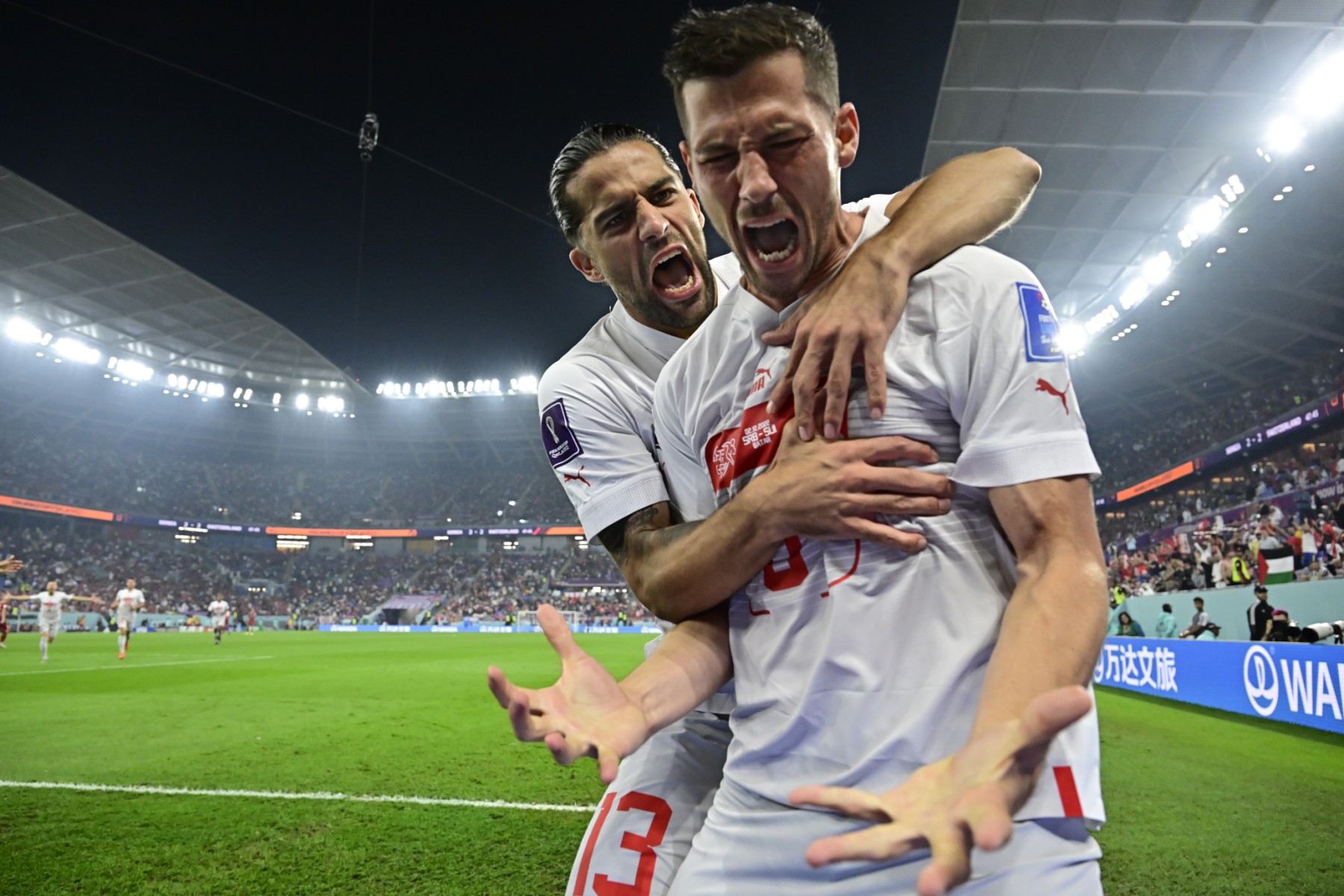This is the first World Cup since the South Africa tournament in 2010 in which teams from Asia, Africa and North America have all been represented in the last 16.
Brazil remain the favourites to claim a sixth World Cup and end Europe’s recent dominance on the global stage.
Tite’s side surely need Neymar back from the ankle injury he suffered in the opening win over Serbia but they have a dazzling array of attacking talent beyond the world’s most expensive footballer.
They are usually rock-solid defensively, even though a side with nine changes to the starting line-up lost their final group game against Cameroon.
Brazil have not yet faced top opposition and will expect to cruise past South Korea on Monday, with Croatia or Japan then awaiting them in the quarter-finals.
A mouthwatering showdown with Argentina in the semi-finals remains a possibility, with Lionel Messi and his teammates recovering from their shock loss to Saudi Arabia to beat Mexico and Poland.
If Messi’s team get past Australia, they could find themselves up against the Netherlands in the last eight, although the Dutch must first overcome a tough United States team.
Argentina came into the World Cup unbeaten in 36 games and with expectations high that they could win the trophy for a third time but coach Lionel Scaloni has played down their chances.
“We are not favourites,” he insisted. “We are a difficult team to beat, a team that will fight, but to think that because we won (against Poland) we are going to be champions would be totally mistaken.”
The other side of the draw is weighted towards Europe, despite elimination for Germany and Belgium.
Holders France are the team to beat and in Kylian Mbappe they have the most exciting player in the competition.
Didier Deschamps’ side eased through their group, even fielding an unrecognisable line-up in their final defeat by Tunisia as regulars were rested.
“We fulfilled our objective,” he said. “Now we will recuperate because a second competition is about to begin.”
History is not on the side of a France team looking to become the first since 1962 to successfully defend the World Cup, and they are on a possible collision course in the last eight with England.
Spain, the joint-top scorers in the group stage with England on nine goals, are also on their side of the draw.
Semi-finalists in 2018 and Euro 2020 runners-up, England are quietly growing in confidence.
“In Russia, we were just thinking, ‘Can we win a knockout game?’ Now there is more confidence and more experience of knockout matches,” said England manager Gareth Southgate.
Global game
It was German great Jurgen Klinsmann, part of FIFA’s technical study group analysing the tournament, who predicted that Qatar would produce shocks.
“If some of the kind of underdogs — maybe if it’s an African nation, if it’s an Asian team — if they are courageous I think you can go far in this tournament,” he said.
The last-16 line-up does at least reflect the global nature of football.
Japan, who have never gone further than the first knockout stage, stunned Germany and Spain and now have 2018 finalists Croatia in their sights.
South Korea have also qualified after a last-gasp winner against Portugal.
Qatar has also already been a good World Cup for Africa, with two teams in the last 16, compared with none four years ago.
Senegal, who have overcome the loss of Sadio Mane, will face England, while a talented Morocco side are living up to their billing and will have the backing of many across the Arab world when they play Spain.
Brazil are still the favourites for most, but there is a sense there are more surprises in store.
Here are more stories related to the FIFA World Cup.

